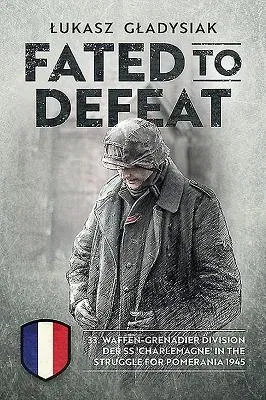33. Waffen-Grenadier Division der SS was one of a number of divisions
in the Third Reich's armed forces composed of foreign soldiers. The
majority that formed this unit were French: volunteers or men who,
because of collaboration, had been forced to help the German's on the
eve of the Allied invasion in Western Europe. During February-March 1945
the French division took part in the struggle for Pomerania, facing
overwhelming Soviet and Polish Forces. The unit fought in a constant
retreat and met its fate during the few days of battle in Bialogard
(former Belgard an der Persante) and Karlino (Koerlin) region. From that
point, after the Division's reorganisation from the German to the French
pattern, the retreat transformed into a chaotic escape, which for many
ended tragically in Polish or Soviet captivity, or in mass graves which
are still waiting to be discovered. Only a handful of the 4,500
Frenchmen who started the battle near Czarne (Hammerstein) and Czluchów
(Schlochau) managed to survive and after a few weeks reached the new
meeting point in Neustrelitz, Germany. After that, some of them prepared
for struggle for Berlin and went to battle once more in April 1945.
Lukasz Gladysiak's book is the first attempt by a Polish author to
accurately recreate these episodes of the last stages of 33.
Waffen-Grenadier Division der SS's history. Collecting historical
sources from all over Europe, including German Army Group Vistula's
documents, and memories of veterans of both sides of the frontline
largely unpublished so far, the author takes us to the fields, towns and
villages of Pomerania during the tragic days of the beginning of 1945,
and follows the battle through the towns of Czarne
(Hammerstein)-Czluchów (Schlochau), Szczecinek (Neustettin), Bialogard
(Belgardan der Persante), Karlino (Koerlin) iKolobrzeg (Kolberg). While
the chronological description of the combat forms the backbone of this
book, the individual soldiers' stories, including biographies of key
figures, as well as a number of previously unsolved mysteries are also
covered, such as the fate of General Edgar Puaud. This is the first book
that refers extensively to the French SS-men's battles in Pomerania in
the last stages of the Third Reich.

